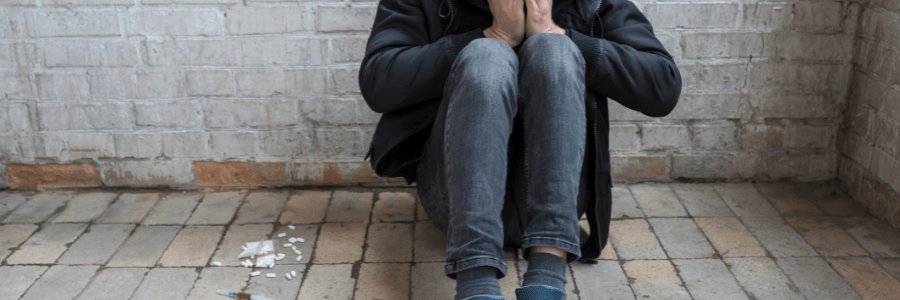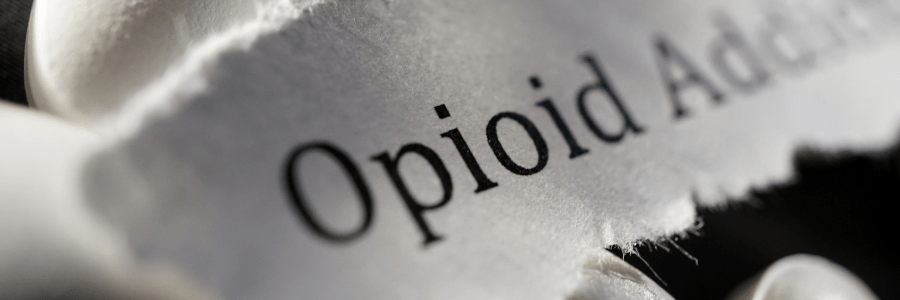Heroin Addiction
Here at PCP rehab, we help those who suffer from an addiction to Heroin; to detox and reinvent themselves, so that they can integrate back into society and live the life they never thought possible.
Heroin addiction is a very serious, life-threatening disease of the brain; over time it only ever gets progressively worse without the correct treatment.
In 2016, in England and Wales alone, the Office For National Statistic (ONS) reported a devastating number of drug poisoning deaths, 3,744 in total. Of these deaths,1,209 were attributed to poisoning from Heroin and/or Morphine. This is the highest number of fatalities recorded since records first began. (Source)
We take Heroin addiction very seriously as it is killing people on a daily basis across the UK. Call us today for immediate help and life-saving treatment.

What is Heroin?
Heroin is a Class A depressant drug, processed from Morphine – a powerful natural analgesic substance extracted from certain varieties of poppy plants.
As a powerful opiate, heroin is highly addictive, extremely dangerous and unpredictable in its effects. Once ingested, the body breaks heroin down into Morphine so the effects are very similar but more potent and shorter lasting
Heroin is cut from its pure form and mixed with other substances and then sold by dealers on the streets.
Heroin is typically sold as a white or brownish powder, which can be snorted, smoked, swallowed or liquified and injected.
How Dangerous is Heroin?
Heroin is extremely dangerous. More recently, Heroin has been cut with small amounts of Fentanyl, an extremely powerful medical painkiller which is up to 50 times stronger than Morphine.
Heroin contaminated with Fentanyl has lead to an alarming number of overdoses and deaths; as stronger strains have become available, heroin is now more deadly than ever.
The root of administration that sends the majority of users “over” is injecting. Injecting provides the quickest and most potent hit. The drug reaches the brain within seconds through the veins.
Once injected, there is no going back or stopping a life-threatening situation from developing. Only emergency medical treatment can save an individual from a heroin overdose.
Heroin Abuse and Drug Addiction Statistics
Before we get into the various effects of heroin, the withdrawal symptoms, and all of the other devastating impacts that go hand in hand with long-term substance abuse, first let’s start with some quick facts and statistics around heroin abuse in the UK:
In 2020, 4,561 deaths related to drug poisoning and overdose were registered in England and Wales (3.8% higher than the previous year).
Of those deaths, 3,108 were male and 1,453 were female (some 3/4s).
Drug mis-use death is highest among those aged 45 to 49 (born in the 1970s).
The North East of England currently has the highest rate of death relating to drug misuse.
Roughly half of the drug poisoning deaths involved opiates.

How Long Does it Take to Get Addicted To Heroin?
Addiction and physical dependence on heroin can happen frighteningly quickly. As with all strong opiates, addiction and dependence can occur within as little as 3 to 5 consecutive days of frequent use.
That said, it’s not uncommon for heroin addicts to admit that they felt addicted the moment they injected heroin for the first time. The impact of the drug in your veins, shooting straight to your brain, causes the most potent possible high.
Do not be mistaken – there’s nothing glamorous about it. That very short-lived feeling of pleasure is soon followed by some of the most horrendous feelings of withdrawal imaginable, and what’s to follow only gets worse.
The fact is, the moment you come into contact with heroin, there’s a very high chance that you will become addicted and thus unable to resist future use. As such, you must avoid ‘trying’ heroin at all costs. It is an awful, life-threatening risk.
Similarly, don’t be tempted to try smoking heroin as a ‘safer alternative’. Taking opiate drugs in all forms is dangerous.
The Heroin Effect
Heroin, as an opiate, mimics the brain’s own painkilling chemicals. It attaches to the opiate receptors in the brain and body and is readily accepted by them. The brain is then flooded with feel-good chemicals, mainly dopamine. This produces the effect of an intense euphoric high, where the user loses track of time and feels no pain or negative emotions.
Many heroin addicts tell us,
“I was addicted from the very first time I took Heroin; I fell in love with the drug”
Of course, this feeling of love is very one-sided. You can think of heroin as the ultimate narcissistic partner. It has a grandiose sense of self-importance and the need for excessive admiration – though it will give you no such admiration in return.
Heroin knows how to make you feel good in short bursts, but the rest of the time it will be neglecting you, denying you affection, and making you feel less than human.
It is a relationship doomed to fail and the only one who will end up hurting when it all comes crashing down, is you.
What Does Heroin Addiction Look Like?
In the majority of cases, heroin addiction destroys people’s lives to the point where they have lost everything and everyone; they are only living to use and using to live.
For others, they can be addicted but also hold down a job and live a double life. They take just enough to function normally and avoid withdrawals, then once their commitments are fulfilled, take more.
Heroin addiction presents in numerous forms, but the one thing sufferers all have in common is that they have an incurable brain disease that compels them to take heroin, even when they really want to stop.
Addiction can be prevented and treated successfully, but never cured.
Don’t let the ‘lack of a cure’ put you off seeking addiction treatment. This can easily be misinterpreted as forever being a prisoner to heroin – which is not the case. The recovery process will be difficult, and refraining from drug abuse will be even more so, however, with the appropriate treatment and care, you can indeed take your life back and turn your addictive tendencies toward healthful, sustainable, and more fulfilling pursuits.

Street Names For Heroin
Common street names and slang terms for heroin include:
Brown
Tar
Smack
Dope
H
Dragon
Skag
Junk
Chiba/chiva
China white
Black pearl
Mexican brown
Snow.
What Causes Heroin Addiction?
Heroin addiction develops over a period of time and with repeated drug abuse.
Heroin quickly causes tolerance and dependence in a user, losing its effect. They will have to take more of the drug, change the administration route, or mix with other drugs such as prescription painkillers in order to achieve the effect they crave.
The unfortunate thing about heroin addiction – the truly depraved reality of the drug – is that the user will only ever truly enjoy it the once.
That first time. After that, the user spends the rest of their time chasing a similar high that can never be achieved. One might feel something close to it when injecting higher doses, but the pain and self-loathing that follows is unthinkable.
Once physical dependence has developed, taking any less will result in withdrawal symptoms (which we will cover shortly).
Risk Factors Leading To Heroin Addiction
There is no single cause that leads to heroin addiction, but there are a number of increased risk factors. Genetics, mental health, circumstances and trauma can all contribute to addiction.
Research suggests, that addiction, whether it be to a substance, people, or activity, often develops from trauma or abandonment suffered during childhood and teenage development.
Trauma results in substantial changes to the brain, that will affect how the sufferer thinks and feels unless promptly treated.
Our rehab clinics treat the root cause of addiction by unearthing and healing them, using evidence-based therapies at our drug rehab centres. We believe that this is where the solution to overcoming addiction starts.
Of course, trauma or no trauma, no one is impervious to heroin and its addictive properties. Trauma is typically what drives individuals toward self-medication and escapism, but there are many other factors at play when it comes to pursuing a drug like heroin.
Am I addicted to Heroin?
If you find that you suffer from withdrawal symptoms when heroin wears off, and the symptoms are alleviated by taking more heroin, then it is likely you have a heroin dependence.
If you obsessively think about heroin, how to get it, where to use it, are willing to lie, cheat, beg, borrow or steal in order to get it, then it is likely you have an addiction to heroin.
Whether you have a heroin addiction, abuse or dependence problem, professional treatment is needed in order to recover.
Heroin dependence, abuse and addiction, kills; please call us now for fast, effective and affordable treatment.
The Harmful Effects of Heroin
Heroin not only poses an immediate risk of overdose and death each time you take it but also causes numerous short term and long term harmful effects to your body and brain.
The majority of heroin users die between the age of 40 – 49. Using heroin long term is likely to drastically reduce the quality and length of your life.
Harmful effects of Heroin addiction include:
Transmission of bloodborne viruses such as HIV and Hep C
Permanent damage to veins and arteries
Respiratory depression
Overdose, leading to coma or death
Abscesses
Gangrene
Reduced blood supply to tissues and organs
Blood poisoning and cellulitis
Organ damage and failure
Miscarriage
Impotence
Mental health illnesses
Cognitive impairment
Intense itching leading to open sores and infections
Severe depression and suicidal ideation
Turning to crime and prostitution to fund the addiction.
As you can see, many of these effects can be terribly life-threatening and degrading. This is why it is paramount that you seek out heroin rehab treatment as soon as possible. The sooner you work toward freeing yourself of this terrible drug, the more likely you will be to avoid all of the above.
Spotting the Signs and Symptoms of Heroin Addiction in Someone Else
If you are worried someone you care for has a heroin addiction, there are signs and symptoms to look out for.
The signs do vary from one individual to another, however, here’s a fairly comprehensive list:
Depression
Feelings of euphoria
Noticeable mood swings
Social anxiety
Uncharacteristic hostility
Irritability
Lying
Avoiding social interaction with loves ones
Weight loss
Visible scabs and bruises
Delusions
Disorientation and paranoia
A drop in personal hygiene
Increased sleeping
Lack of commitment to responsibilities (work/school)
No more interest in passions
Lack of general motivation
Shortness of breath
Slurred speech
Drug mouth
Wearing long-sleeved clothes and covering themselves (even in warm weather).
This powerful video from Let’s Face Heroin shows exactly the signs and symptoms of heroin addiction to look out for in someone else. It also depicts the savage progression of the illness.
How To Help a Family Member or Loved One With Heroin Addiction
If you are worried that a family member or loved one possibly has a heroin addiction, you should not ignore the problem and hope that it will resolve itself. As a chronic relapsing brain disease this is very unlikely to happen. They will need professional help.
Don’t:
Give them money
Lie or cover up for them
Buy them Heroin
Pay off dealers
Blame yourself.
Do:
Encourage them to seek help and support
Contact us for advice on treatment options
Urge them to attend rehab
Understand that they are very sick and need treatment to get well.
You can also access support and advice by contacting Adfam.
Starting a Conversation About Heroin Addiction (and Pursuing Addiction Treatment)
We wholeheartedly understand how hopeless it can feel when you suspect that a loved one is suffering from heroin addiction and abuse. The important thing to remember is that there are steps that you can take to help them on the road to recovery.
The first step of course, is having a conversation – and this is one of the hardest (though most crucial) steps of all.
Before you consider trying to have a discussion with a friend or loved one about their heroin addiction and suggesting that they seek professional treatment, you must remember that they will likely not respond well to your initial outreach. Which is precisely why you must approach such a conversation with great care and consideration.
Wait for a time when you are both clear-headed and able to talk. Walking in one them and then dropping the intervention bomb while they’re reeling from a hit and going through withdrawal symptoms is asking for trouble.
Educate yourself on the issue. Bowling into the conversation under the belief that heroin addiction is a weakness of character, not a disease, will only lead to more conflict. The only way this works is if you make a genuine effort to understand the nature of heroin addiction. Only then might you be able to gain some slither of understanding about the terrible pain and suffering that they are battling with. Once you have more information and a deeper sense of empathy, you will be far better positioned to help them through this dark time.
Avoid stigmatising language and stereotyping when broaching this topic. The addicted individual is already feeling bad enough about themselves as it is without further fear and self-pity being added to the list.
Rather than use terms like “addict”, “user”, or “junkie”, use “a person suffering from substance use disorder” or something to that affect. The language that you use is powerful.
Make sure that you are clear and upfront about what you want to talk about, but don’t be too pushy. Starting with how you feel is often the best approach.
Remain calm when talking about the subject. We understand how passionate you must feel about getting your loved one the help that they need, but letting your emotions drive the conversation will only result in disaster.
Give them plenty of space to respond, let them finish what they are saying, and listen intently. This is your opportunity to really hear them and make them feel like they are being taken seriously.
Take action alongside them.

Symptoms of Heroin Withdrawal
Heroin withdrawal symptoms are notoriously unpleasant and painful, both physically and psychologically. This is why so many fail to get clean in the community; the temptation to use just to make the symptoms go away is too great to resist.
That’s where the term “chasing the dragon” comes from. That said, a more appropriate turn of phrase would be “running away from the dragon”, as it is the high that heroin users are chasing, and the distressing symptoms that they are simultaneously running away from.
The good news is that heroin detoxification is entirely possible, under the right conditions. First, we will take you through some of the most common withdrawal symptoms, then we will walk you through treatment for heroin addiction and all of the steps involved.
Heroin withdrawal symptoms include:
Intense drug cravings
Vomiting and diarrhoea
Sweating
Hot and cold chills
Severe abdominal cramps
Muscular aches, pains and cramps
Lethargy
Goosebumps
Loss of appetite
Restlessness
Insomnia
Anxiety
Panic attacks
Paranoia
Hallucinations
High blood pressure
Rapid heart rate
Sneezing and tearing
Severe depression
Suicidal ideation.
Heroin Addiction Treatment
Heroin treatment comes in many forms, though the most effect is arguably heroin rehab and counselling, coupled with medical detoxification. Here’s a closer look at the various treatments that we offer…
Inpatient Heroin Detox
Our detoxes specialise in treating heroin addiction; as with all addictions that involve a substance dependence, this must start with a detox. Our CQC registered heroin detox clinics provide inpatient medical detoxes that assist you in getting clean from heroin.
By admitting to one of our UK-based addiction treatment centres, you will receive a full medical detox for any established heroin dependence that is established. You will also receive professional support 24/7 from our team of experienced addiction and medical professionals.
Inpatient medical detox is clinically proven to be the safest way of detoxing from Heroin.
In order to help safeguard against relapse, we strongly recommended that you also undergo a comprehensive heroin rehabilitation programme with us.
UK Rehab Help For Heroin Addiction
For many with a heroin addiction, rehab is a life-saving treatment option. We have well established, successful rehabs, located within London, Bedfordshire, Midlands, Essex and Cardiff – all are accessible from most areas of the UK.
PCP Treatment Programme For Heroin Addiction
The Perry Clayman Project offers a full medical detox and rehabilitation programme for anyone struggling with heroin abuse, addiction or dependence.
Within the safe and temptation-free environment of our rehabs, you can be assured of the highest quality of addiction treatment at an affordable price.
As well as short term inpatient programmes, we also offer long term treatment programmes, including medical detox, full rehabilitation and sober living accommodation within our third stage Move On houses.
We understand that heroin addiction is a very destructive illness. Many who suffer need comprehensive rehabilitation in a loving and compassionate environment that is conducive to long term recovery.
Our bespoke treatment programmes for heroin addiction are designed to bring about a complete change in your thinking and behaviours; that will enable you to rebuild your life, with our support, and stay free from heroin on a permanent basis.
What Does Heroin Addiction Treatment Involve?
Here’s a look at inpatient and outpatient treatment for heroin dependency. We’ll talk you through the process in more detail, however, we urge you to contact us today for detailed information on how we can help you on the road to recovery.
Inpatient rehab treatment for heroin addiction
Inpatient rehab and heroin addiction treatment begins with a commitment from the individual suffering from substance abuse.
Make no mistake, the only way this works is when the user is ready and willing to participate in their heroin treatment, with a genuine desire to finally be free and clean of this extremely addictive opioid drug.
Once the commitment has been made to our heroin rehab programme, we begin with the intake process. This is where we carry out a thorough mental and physical health assessment, keeping an eye out for any serious health risks or other important factors that our medical professionals must be made aware of.
Following that, with a thorough understanding of the individual suffering from substance abuse, we can put together a personalised programme designed for effective heroin treatment in a way that will resonate best with the addicted individual’s specific needs.
This is an important part of the heroin rehab process; crafting a specialised programme that has been specially designed by a substance abuse professional. It speaks to the individual in a way that will significantly increase the overall chance of a successful recovery – rather than prescribing a ‘one-size-fits-all’ approach and hoping for the best.
In our years of experience, no two addicts are the same – which is precisely why the stigma and stereotypes surrounding heroin users are incredibly dangerous.
The underlying traumas and psychological triggers that have led the individual to this point in their life are what we aim to unearth. But first, a thorough detox treatment is required.
In most cases, where individuals who have been using for some time, the next step will be to undergo a medical detox process.
Unattended, this is a highly dangerous process, however, with our state-of-the-art medical equipment and highly trained in-house doctors, we always strive to make the process as comfortable as is possible.
In order to alleviate withdrawal symptoms, methadone maintenance treatment may be prescribed. This is typically reserved for those who are highly addicted and have been dependent on heroin for many years.
For those not suitable for methadone maintenance treatment, a thorough detox and cleansing process takes place. This is where the individual is placed under round-the-clock medical care and their vitals are monitored until they are over the worst of it. Once well enough to actively push forward with their heroin treatment programme, the next stage of rehabilitation begins.
Rest assured that we have a medical provider present at all times and we will take steps to help prevent withdrawal after the detoxification process is complete. Following that, ongoing treatment will be available, as the individual progresses.
Now that the individual in recovery has settled in, we will begin a number of different individual counselling and group therapy sessions.
The individual counselling sessions with our psychological experts are intended to root out any mental health issues and work towards better understanding the nature of the individual’s addiction. Together, we will explore past traumas and work on personal comping techniques to help with the ongoing opioid withdrawal and the mental health conditions that come with it.
As for the support groups, we have found that having our patients interact with one another and discuss the nature of their addiction together can be very therapeutic. It helps to be surrounded by others who know precisely what you are going through – rather than feeling judged.
There are many other therapeutic approaches involved in the rehab process and they vary from one treatment centre to another – and indeed the individual recovery programme. In any case, we will do everything we can to create a safe and fulfilling environment where our patients have all of the support that they need to work toward genuine recovery.
Outpatient rehab treatment for heroin addiction
Outpatient rehab options vary from inpatient, in that they do not involved detox or accommodation. It is something that you can participate in in your own time.
This is a preferred approach for those who do not have a severe dependency on heroin or other opioid drugs and have perhaps only been using casually for a short amount of time.
Rather than fully commit to a rehab facility and be away from your friends, family, and work commitments, you can instead visit in the evenings and take part in various support groups to gather more information.
For some people, outpatient rehab and taking part in regular counselling meetings – both individual and group therapy – is enough to kick the habit and get back to normality. However, for those who are really struggling with opioid addiction, commitment to an inpatient programme is highly recommended.
Often, what is most effective at helping people through their recovery is a change of scenery. Being able to step away from their normal lives for a few months while they work on themselves, their mental health, and spend time in a temptation-free environment.
Inpatient Vs. Outpatient: How Do I Know Which Is Best For Me?
If you are not sure as to which form of treatment is better suited to you or a loved one’s current situation, then please do not hesitate to contact us today. We will gladly offer you free confidential assessment to help determine the best course of action for your unique circumstances.

Call us now, for immediate heroin help.
If you are worried that your heroin use might be getting out of hand, or you suspect that a loved one is suffering from drug abuse and may be in need of heroin addiction treatment, please do not hesitate to contact us today.
We understand how difficult that initial step can be. Just know that your call will be received with no judgement – only love and compassion.
